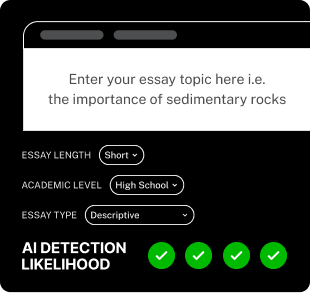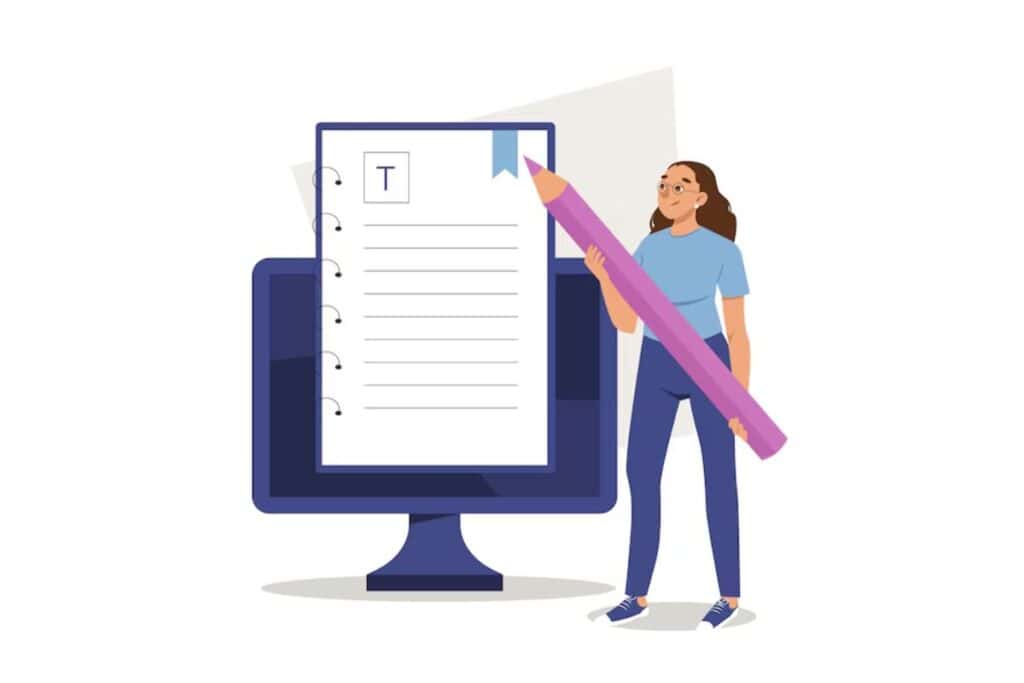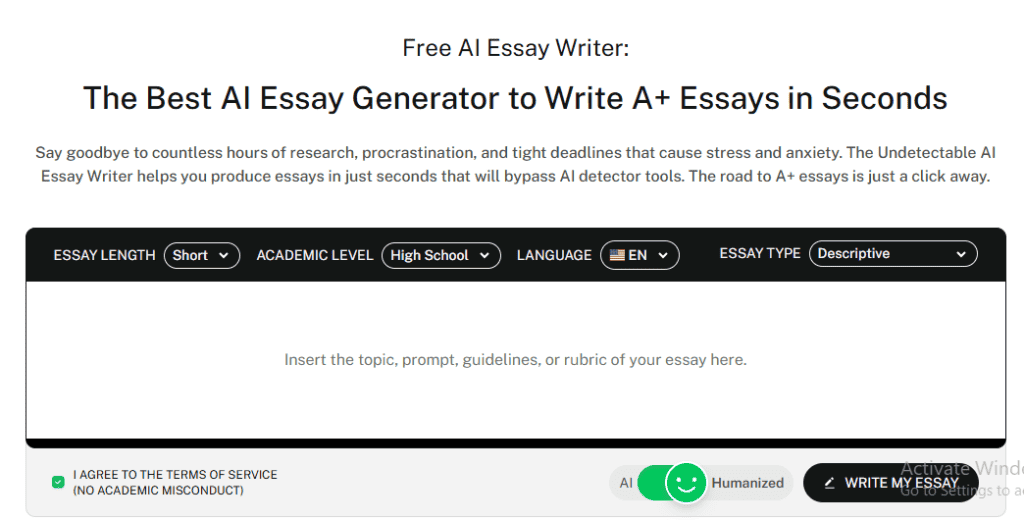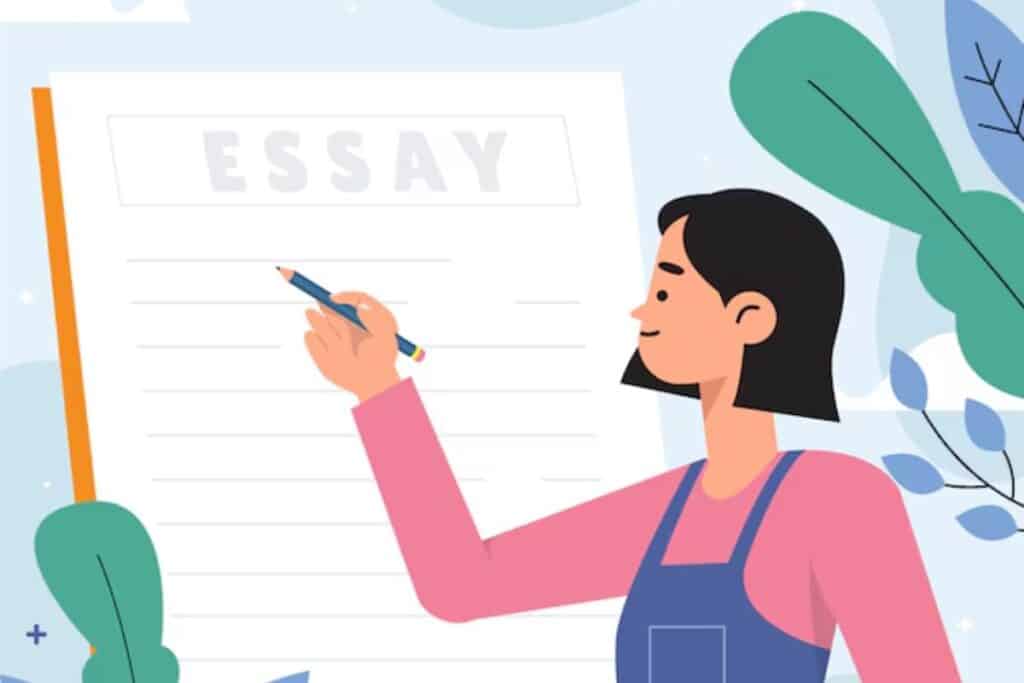Writing essays can be an exhausting task. Most people looking back on their days in school and current students can all attest to that sentiment.
The pressure of writing something that’s captivating and original, an essay that will turn heads and yield a high grade, generates anxiety in students all over the world.
And the thing that will capture the most attention and really keep the audience, in most cases the professor, reading the essay is something called a hook.
Understanding what a hook is and how to write a hook for an essay can make a huge difference in the outcome of the piece and how it is viewed by the person reading it.
What is a Hook in an Essay?
A hook in an essay is generally the opening line that is designed to pique the interest of the reader.
Whether you’re crafting an argument or seeking to impress with your narrative, the hook serves as an essential tool for making an impact.
Much like a research paper writer who carefully chooses their opening to set the tone.


Generate Top-Notch Essays in Seconds. The AI Essay Writer helps you produce essays that will bypass AI detection tools.
- Create Essay Drafts Instantly
- Multiple Writing Styles
- Multilingual Support
The hook is used as bait, a way to lure in the attention of the reader and captivate them in a way that they will continue reading out of a desire to learn more about the topic at hand.
Not all essays are created equal. A single classroom where all students are assigned the same topic can yield dozens of different ways to talk about or explain the same idea.
What will make one essay stand out from the others is a hook that compels the reader to keep going.
The hook is essentially an elevator pitch, a short and sweet delivery that is designed in a way to generate curiosity and intrigue, a segue into the deeper and more detailed explanations and research that go into the essay as a whole.
A hook can be presented by using an anecdote, a powerful or inspiring quote, a shocking statistic, or a well-written and vivid description. The hook establishes from the start the essay’s tone and relevance.
Why is it Important to Have a Good Essay Hook?
If you don’t have a good essay hook, you will have a very hard time connecting with the reader.
Aside from that, you can lose the interest and attention span of the audience if you don’t captivate them from the beginning.
Keep in mind, most essays are written by students and the professor responsible will be required to read dozens of them for each assignment.
If you don’t have a great essay hook, the chances are you won’t capture the attention of the professor and this will impact the grade you receive on the essay.
Storytelling is such an important part of human history. It goes back to the beginning of mankind and has played an integral role in the advancement of humanity and society.
From the early times of humanity, the best storytellers were the ones who were able to capture the attention of their desired audience.
Using a great hook that piques the interest of audiences has always been a vital component of telling a great story, whether it’s a speech or an essay.
What are the Different Types of Essay Hooks

There are different kinds of hooks that can be used while writing essays.
Each kind of hook is different but has the same principal purpose: to get the reader’s attention so they are hooked from the start and continue reading with the desire to learn more, not just because they are tasked with the assignment to read the essay.
By creating a captivating hook and generating a desire to keep reading, you are one step ahead on the mission to deliver an essay that is actually impactful.
Anecdote
An anecdote is a short, amusing, and interesting story or quip about a person, story, or event. Kicking off an essay by sharing an anecdote is a very easy and entertaining way to hook the reader into feeling engaged and curious about the story they are about to read.
Rhetorical Questions
A rhetorical question is a question that is asked for effect and not necessarily to elicit some kind of an answer.
It’s a great way to make people think or question themselves or their beliefs regarding a specific topic or subject matter.
Description
Using a description as a hook that’s intriguing and attention-grabbing is a great way to drive curiosity and ensure the audience continues reading the essay.
Fact/Statistic
People love facts and statistics.
They are great ways to engage readers by providing them with bits and pieces of factual information they can then use to build stronger opinions or arguments about the subject at hand.
Quotes
Using a quote as a hook can work really well if choosing the right person and a quote that is highly relevant to the topic of the essay.
People are easily inspired by quotes so leveraging them as hooks is a great strategy for writing essays that engage.
Common Misconceptions
By adding a common misconception as a hook for your essay, you teach something right off the bat.
This is a really impactful way of showing the reader that they can expect a lot more value and lessons learned if they continue reading beyond the hook of the essay.

Working with Undetectable AI’s AI Essay Writer can help you brainstorm and draft powerful hooks that immediately grab the reader’s attention, whether you need a punchy rhetorical question or a vivid description.
It acts as a creative partner that suggests multiple variations of your opening, allowing you to choose the one that best establishes the tone and stakes of your topic.
What Are Some Good Hooks for Essays (With Examples)
An Intriguing Rhetorical Question
Let’s imagine you are writing an essay about using artificial intelligence to create articles. An intriguing rhetorical question you could use for the hook of the essay could be something like:
“Do you want to spend the whole day writing or leverage technology to do the work for you?” It’s an obvious answer but a question that doesn’t necessarily even need an answer. It makes a point.
That’s why it makes a great hook because it intrigues the reader to find out more about how technology will do the work for them.
A Surprising Fact or Statistic
Shock your reader right off the bat. You writing about health and nutrition? Start your essay with a statistical hook like:
“X% of people who consume Y are more likely to develop Z in their lifetime.” Obviously the reader will be curious to know if they fall into that category and will keep reading.
A Relevant Quotation
People love quotes. By adding an inspiring or thought-provoking quote by someone that carries weight on the topic of your essay, your hook will capture the reader’s attention.
If you are writing an essay on veganism, for example, and you start off with the following quote by Paul McCartney for a hook, you are on the right path:
“If slaugherhouses had glass walls, everyone would be vegetarian.”
An Interesting Anecdote
Anecdotes can be personal or amusing. This helps catch the reader’s attention making it a great hook for an essay. Connect with the reader by using a meaningful anecdote.
If you are writing an essay on public speaking, a great example of an anecdote spoken by Winston Churchill would definitely work as a captivating hook.
“When I get up to speak, I always make a point of taking a good look around the audience. Then I say to myself, ‘What a lot of silly fools.’ And then I always feel better.”
A Common Misconception
Back to the idea of an essay discussing veganism, as there are many common misconceptions about a plant-based diet, creating a hook with something that will really surprise the reader would be a great way to kick off the piece. For example:
“Contrary to popular belief, a plant-based diet won’t cause protein deficiencies. In fact, plant-based consumers can get more than enough protein without even having to supplement.”
How to Write a Hook for an Essay and Get Started

Without knowing where you are going with your essay, it will be challenging to create the right hook. You don’t want to start with the hook, even though it will eventually be at the start of the essay.
In order to create a hook that really does the job, you want to flesh out the entire essay, research the subject matter first, and decide the hook toward the end.
This way, you are well-versed in the subject matter by having done most of the research first.
Create an Outline
First, you want to outline the entire essay. Figure out what you are going to write about, the direction you will take the piece, and how you will close it out.
By outlining the intro, body, and conclusion of the essay first, you already do a lot of the legwork to understand the structure and content that will be used to develop the essay.
Simply outlining the essay first will already get the creative juices flowing so the hook you end up creating will be impactful.
Develop a Thesis
The thesis statement is the main idea or concept that you will talk about and deliver in your essay. You want to develop this first so you have a strong backbone to build on when it comes time to write both the hook and the essay.
Writing your thesis statement will make it so much easier to write your hook. The thesis is typically presented at the end of the introduction whereas the hook is at the beginning of the intro.
So by having your thesis developed and in place, you’ll naturally be able to write a hook that makes a lot more sense and flows well into the thesis statement shortly after.
Write Your Hook
Once your essay is outlined and the thesis is ready to go, you want to write your hook. Which style hook will depend a lot on the subject of the essay and what you plan to present with the thesis.
That’s why having the first two steps in place before taking a shot in the dark with the hook is essential. Write a few different types of hooks to see which works the best.
Share the introduction with friends or colleagues to see which hook captures their attention the most before making your final decision.
Conclusion
Writing an essay can be a tiring and tedious experience for many people. But it doesn’t have to be that way if you are prepared with the proper steps to take and tools to use to assist you in the process.
Once you have the outline and thesis in hand, you can even plug them into ChatGPT to help brainstorm some hooks that make your essay intro pop.
Our AI Essay Writer tool can also assist in structuring your content and refining your arguments.
If you use ChatGPT, an AI Essay Writer, or another AI-generated content tool for your essay, run it through the Undetectable.ai humanizing tool to ensure the text sounds natural and not robotic.
You can try Undetectable AI easily with the widget below (English only). Simply paste your text and watch as it transforms into a more humanized and polished version.
While the hook of an essay might seem like a simple step that’s easy to ignore (it’s just a sentence, right?), don’t slack on this step.
It’s a step too many people don’t give enough time and part of the process that can make or break a great essay.
Remember, your essay will be one of many and you want to stand out in a crowded room, not just be another paper on the pile.
